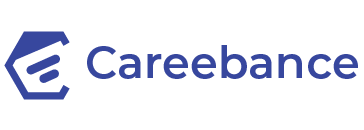A recent LinkedIn exchange crystallized a moment most professionals know all too well. When asked about salary expectations, a candidate turned the question back to the interviewer, asking about the role’s budget. The interviewer’s response—”You are here to sell your skills to us, and you should know how much you are worth”—followed by a telling moment of silence, perfectly captures the dysfunction in modern hiring practices.
The Psychology Behind the Salary Discussion
The Power Dynamic
The traditional salary discussion represents more than just a negotiation—it’s a complex interplay of psychology, market dynamics, and organizational behavior. When an interviewer asks about salary expectations, they’re not just seeking a number; they’re participating in a deeply ingrained corporate ritual that often disadvantages candidates.
As one LinkedIn commenter noted, “This is very common and it makes no sense. Just state the budget and don’t waste people’s time.” This sentiment reflects growing frustration with outdated practices that create unnecessary tension in the hiring process.
The Real Cost of Ambiguity
Organizations often underestimate the true cost of salary opacity:
- Candidate Trust Erosion
- Qualified candidates withdraw from consideration
- Negative experiences spread through professional networks
- Employer brand damage in competitive markets
- Process Inefficiency
- Extended interview cycles with misaligned expectations
- Increased recruiter workload managing expectations
- Higher cost-per-hire due to prolonged searches
- Market Positioning Impact
- Difficulty attracting top talent in competitive sectors
- Reduced ability to build diverse teams
- Missed opportunities for market leadership
The Evolution of Salary Discussions
Historical Context
Traditionally, salary discussions followed a predictable pattern:
- Employers held information advantage
- Candidates feared naming figures first
- Discussion occurred late in the process
- Limited market data availability
Current Landscape
Modern hiring faces new pressures:
- Pay transparency legislation
- Social media discussion of compensation
- Increased market data accessibility
- Changing candidate expectations
The Impact of Social Change
Generational Shifts
Younger professionals approach salary discussions differently:
- Greater comfort discussing compensation
- Increased expectation of transparency
- Higher value on total compensation package
- More likely to share salary information
Cultural Evolution
Workplace culture around compensation is changing:
- Growing support for pay transparency
- Increased focus on equity
- Rising importance of fair compensation
- Shift toward open discussion
Market Forces Driving Change
Economic Pressures
Several factors influence modern compensation discussions:
- Labor Market Dynamics
- Skill shortages in key sectors
- Remote work impact on salary benchmarks
- Geographic pay differentials
- Industry-specific compensation trends
- Competition for Talent
- Multiple offer scenarios
- Rising importance of speed in hiring
- Need for competitive packages
- Total compensation considerations
Regulatory Environment
The legal landscape continues to evolve:
- State-Level Requirements
- Salary range disclosure laws
- Pay equity legislation
- Reporting requirements
- Compliance guidelines
- Federal Considerations
- Equal pay regulations
- Discrimination prevention
- Transparency requirements
- Reporting standards
Technology’s Role in Transformation
Modern HRIS Solutions
Careebance’s platform addresses these challenges through:
- Automated Compensation Analysis
- Real-time market data integration
- Internal equity assessment
- Geographic adjustment calculations
- Role-based benchmarking
- Process Automation
- Salary range communication
- Candidate experience management
- Compliance documentation
- Approval workflows
- Data Analytics
- Compensation trend analysis
- Market position assessment
- Budget optimization
- Equity monitoring
Integration Benefits
Organizations using integrated solutions experience:
- 40% reduction in time-to-hire
- 35% improvement in offer acceptance rates
- 25% decrease in compensation negotiation time
- 50% increase in candidate satisfaction
Best Practices for Modern Organizations
Strategic Approach
Organizations should develop comprehensive compensation strategies:
- Market Position
- Define compensation philosophy
- Establish market positioning
- Create clear ranges
- Develop communication protocols
- Process Development
- Design standardized procedures
- Create approval workflows
- Establish documentation requirements
- Implement feedback mechanisms
- Training Implementation
- Prepare hiring managers
- Develop recruiter guidelines
- Create response frameworks
- Establish negotiation protocols
Practical Implementation
Steps for implementing transparent practices:
- Initial Assessment
- Audit current processes
- Identify pain points
- Evaluate market position
- Review compliance requirements
- Technology Integration
- Select appropriate tools
- Configure systems
- Train users
- Monitor effectiveness
- Process Optimization
- Establish metrics
- Track outcomes
- Gather feedback
- Make adjustments
Addressing Common Challenges
Employer Concerns
Organizations often worry about:
- Budget Flexibility Solution: Create range-based approaches that maintain negotiating room while providing transparency.
- Internal Equity Solution: Develop clear compensation structures that account for experience and performance.
- Competitive Position Solution: Use market data to ensure ranges remain competitive while managing costs.
Candidate Perspectives
Job seekers face several challenges:
- Information Asymmetry Solution: Provide clear ranges and total compensation details upfront.
- Negotiation Pressure Solution: Create structured processes that reduce anxiety and promote fair outcomes.
- Career Impact Solution: Ensure compensation aligns with market value and career progression.
Future Trends in Compensation Discussion
Emerging Practices
The future of salary discussions includes:
- Technology Integration
- AI-powered compensation analysis
- Automated range calculations
- Real-time market adjustments
- Predictive analytics
- Process Evolution
- Earlier compensation discussions
- More transparent negotiations
- Standardized approaches
- Integrated feedback loops
- Market Changes
- Increased salary transparency
- Enhanced candidate experience
- Improved hiring efficiency
- Greater pay equity
Industry Leadership
Organizations leading in this area demonstrate:
- Clear compensation philosophy
- Transparent communication
- Fair negotiation practices
- Efficient processes
Implementing Change
Step-by-Step Guide
- Assessment Phase (1-2 months)
- Audit current practices
- Identify improvement areas
- Define success metrics
- Plan implementation
- Technology Integration (2-3 months)
- Select appropriate tools
- Configure systems
- Train team members
- Test processes
- Process Implementation (3-4 months)
- Roll out new procedures
- Monitor outcomes
- Gather feedback
- Make adjustments
- Optimization (Ongoing)
- Track metrics
- Adjust processes
- Update training
- Monitor compliance
Success Metrics
Key Performance Indicators
Organizations should track:
- Process Efficiency
- Time-to-hire
- Offer acceptance rates
- Negotiation duration
- Candidate satisfaction
- Market Position
- Compensation competitiveness
- Offer acceptance rates
- Candidate quality
- Market perception
- Internal Impact
- Employee satisfaction
- Internal equity
- Budget adherence
- Process compliance
The Path Forward
The evolution of salary discussions represents a crucial shift in modern hiring practices. Organizations that embrace transparency and adopt efficient processes position themselves for success in attracting and retaining top talent.
Careebance’s comprehensive HRIS solution supports this evolution by providing:
- Integrated salary analysis tools
- Automated compliance management
- Structured communication protocols
- Enhanced candidate experience features
For organizations ready to transform their salary discussion processes, visit www.careebance.com to learn how our platform can help create more transparent, efficient, and effective hiring practices.







